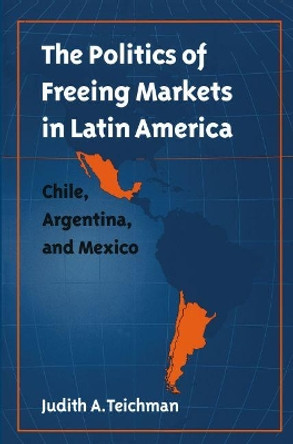One of Latin America's leading sociologists, Manuel Antonio Garreton explores contemporary challenges to democratization in Latin America in this work originally published in Spanish in 1995. He pays particular attention to the example of Chile, analyzing the country's return to democracy and its hopes for continued prosperity following the 1973 coup that overthrew democratically elected president Salvador Allende. Garreton contends that the period of democratic crisis and authoritarian rule that characterized much of Latin America in the 1960s and 1970s was symptomatic of a larger breakdown in the way society and government worked. A new era emerged in Chile at the end of the twentieth century, Garreton argues--an era that partakes of the great changes afoot in the larger world. This edition updates Garreton's analysis of developments in Chile, considering the administration of current president Ricardo Lagos. The author concludes with an exploration of future prospects for democracy in Latin America. |Essays by one of Latin America's leading sociologists explore contemporary challenges to democratization in Latin America, analyzing in particular Chile's return to democracy following the 1973 coup that overthrew president Salvador Allende. Originally published in Spanish in 1995 and now updated.
About the AuthorManuel Antonio Garreton is professor of sociology at the Universidad de Chile. Peter Cleaves is with the AVINA Foundation. Marcelo Cavarozzi is professor of politics and government at the Universidad Nacional de General San Martin. Jonathan Hartlyn is professor of political science at the University of North Carolina at Chapel Hill. Gary Gereffi is professor of sociology at Duke University.||Gregory Horvath is a translator and editor living in New York City.
Book InformationISBN 9780807854839
Author Gregory HorvathFormat Paperback
Page Count 224
Imprint The University of North Carolina PressPublisher The University of North Carolina Press
Weight(grams) 270g










